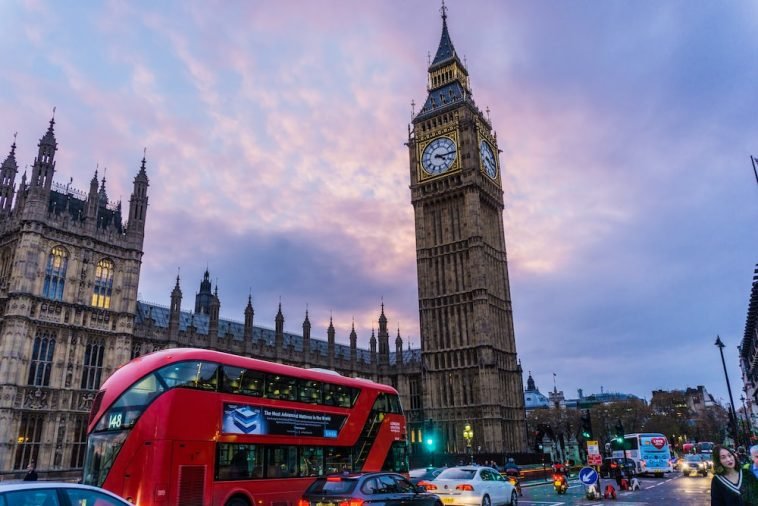Introduction.
So, you’re thinking about starting an Airbnb business in the UK? It’s a great idea! The short-term rental market has exploded in recent years, and the UK, with its bustling cities, beautiful countryside, and rich history, is a prime spot for this kind of business.
But how do you get started? What steps do you need to follow to turn your space into a profitable Airbnb? That’s exactly what we’ll dive into here.
Starting an Airbnb business may seem like a straightforward way to earn money, but there’s a bit more to it than just listing your space and waiting for guests to arrive.
There are a few key steps, from setting up your property to marketing it effectively and keeping your guests happy. Along the way, you’ll need to consider legal requirements, pricing strategies, and what makes your place stand out from the thousands of other listings.
I’ll break down the process for you, step by step, so you can confidently navigate each stage of starting your Airbnb business in the UK.
Plus, I’ll cover some frequently asked questions, so you have all the information you need to get started.
How Do I Start an Airbnb Business In The UK?
1. Check Local Rules and Regulations.
Before you do anything, it’s essential to understand the laws and regulations around renting out properties in the UK.
While Airbnb hosts are generally allowed to rent out their homes, some cities and regions have specific rules about short-term rentals. In places like London, for instance, there are limits on how many nights you can rent out your property each year.
In England, the limit is 90 nights per year for entire properties that are not your primary home. This rule aims to protect local housing markets and prevent areas from being overrun with tourists.
Make sure to research local council regulations in your area and find out what kind of licenses or permissions you might need. The rules can vary by location, so don’t skip this step!
2. Decide on the Type of Property You’ll Rent Out.
Next, you’ll need to decide what you’re going to rent out. Will it be a single room in your home, an entire flat, or a holiday home you’ve bought for the purpose? The type of property you choose to list will influence your target market, your pricing strategy, and how much you can charge.
If you have a spare room, it’s worth considering renting it out as a private or shared space. If you own an entire property, you’ll have more flexibility to offer it as a full listing.
The type of accommodation will also affect the amount of work involved in cleaning and managing the property.
3. Set Up Your Listing.
Now comes the fun part! Setting up your listing on Airbnb. Take clear, high-quality photos of your property.
First impressions count, and people are more likely to book if they can see exactly what they’re getting. Make sure to highlight the best features of your space—whether it’s a stunning view, a cosy atmosphere, or a unique interior design.
Next, write a detailed description that gives potential guests a real sense of what your place is like. Include important details like the number of rooms, the amenities, and your property’s location.
4. Price Your Property Right.
When you’re first starting out, it can be tricky to figure out how much to charge for your property. A good approach is to research other listings in your area to get a sense of what people are charging for similar properties. You’ll want to price competitively while still making sure you’re earning a reasonable income.
Keep in mind that Airbnb offers a “Smart Pricing” tool that automatically adjusts your prices based on demand, seasonality, and other factors. If you’re just starting out, it might be a good idea to start with a lower price to attract guests and build your reputation.
5. Create a Great Experience for Your Guests.
A huge part of Airbnb’s success is its reputation for providing unique, homey experiences. To stand out, you need to go above and beyond for your guests.
Provide helpful amenities like fresh towels, toiletries, and snacks. Keep your property clean and well-maintained, and be responsive to any questions or concerns your guests might have.
The more comfortable and happy your guests are, the better your reviews will be. And good reviews mean more bookings!
6. Prepare for Cleaning and Maintenance.
One of the most important aspects of managing an Airbnb business is keeping your property in top condition.
This means regular cleaning and making sure everything works smoothly. Whether you hire a cleaning service or do it yourself, you’ll need to be prepared for the logistics of turnover between guests.
Some Airbnb hosts choose to hire a property manager to take care of cleaning and guest communications, especially if they have multiple properties. However, if you’re just starting with one place, this can be something you manage yourself.
7. Market Your Listing and Attract Guests.
Now that you’ve set everything up, it’s time to market your Airbnb listing. The Airbnb platform itself is a great place to start, but there are other ways to increase your visibility.
For example, social media can be a great tool for promoting your space. Share photos on Instagram or post about your listing in local Facebook groups.
The more exposure your listing gets, the better chance you’ll have of attracting guests. If you’re in a popular tourist area, you might find that your listing gets booked quickly, especially during peak seasons.
FAQs About Starting an Airbnb Business in the UK
1. Do I need to pay taxes on the money I make from Airbnb in the UK?
Yes, any income you make from renting out a property on Airbnb is taxable. The UK has a “Property Income Allowance,” which means you can earn up to £1,000 per year tax-free. However, if your earnings exceed that, you’ll need to report your income to HMRC and pay tax on it.
2. Can I rent out my property if I live in a rented home?
If you’re renting a property, you need to check your tenancy agreement. Many landlords don’t allow tenants to sublet or rent out rooms to guests, so it’s important to get permission before listing your property on Airbnb.
3. How much money can I make on Airbnb in the UK?
The amount you can make depends on several factors, including the location of your property, its size, and how often you rent it out. According to a 2023 survey by Airbnb, the average host in the UK earns about £3,000 per year from renting out their space. However, some hosts earn significantly more, especially in high-demand areas like London, Edinburgh, and Manchester.
4. What happens if a guest damages my property?
Airbnb offers a Host Guarantee, which provides protection for property damage up to £1 million. However, it’s always a good idea to have your own insurance as well, as the Host Guarantee doesn’t cover everything (like personal property or some types of damage).
Conclusion
Starting an Airbnb business in the UK can be a rewarding and profitable venture, but it’s important to approach it with the right preparation.
From understanding the legal side of things to setting up a standout listing, there’s a bit to think about.
But with the right mindset and attention to detail, it’s absolutely possible to turn your spare room or home into a successful Airbnb.
So, are you ready to take the plunge and start your own Airbnb business in the UK?





GIPHY App Key not set. Please check settings